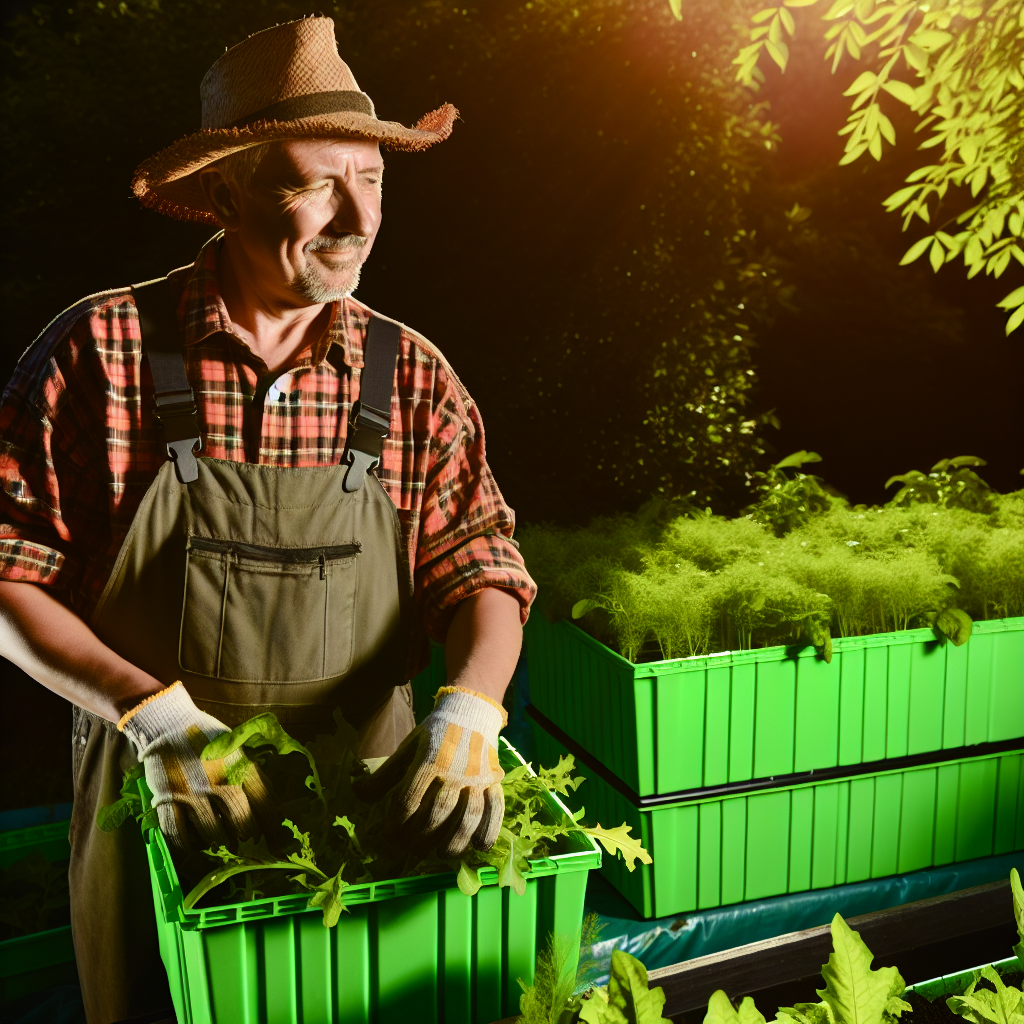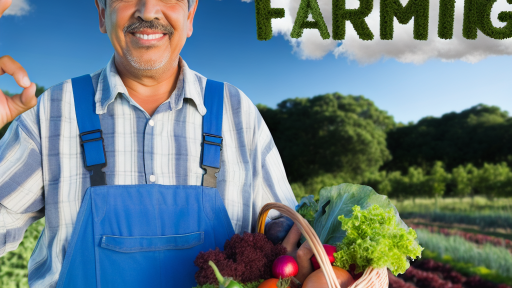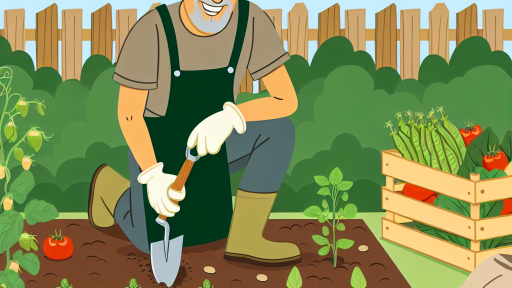Introduction to Container Farming
Definition and Purpose
Container farming involves growing plants in a controlled environment.
It uses modular systems, often in shipping containers, to optimize space.
This method enables urban farming even in limited spaces.
Moreover, it provides fresh produce year-round.
Benefits of Container Farming
One significant advantage is resource efficiency.
Container farms use less water compared to traditional farming.
They also minimize land usage, conserving natural habitats.
Furthermore, these farms reduce transportation costs and emissions.
Fresh produce can reach consumers faster, enhancing its shelf life.
Key Components of a Container Farm
A successful container farm requires several essential components.
First, choose the right container size based on your space.
Next, ensure you have adequate lighting and ventilation systems.
Temperature control is crucial for plant growth.
Implementing hydroponics or aquaponics can boost yields.
Understanding the Growing Process
The growing process begins with selecting suitable crops.
Transform Your Agribusiness
Unlock your farm's potential with expert advice tailored to your needs. Get actionable steps that drive real results.
Get StartedLeafy greens and herbs thrive in these environments.
Next, prepare the growing medium and nutrient solutions.
Regular monitoring is essential for maintaining optimal conditions.
This includes checking pH levels and moisture content regularly.
Environmental Considerations
Container farming can significantly reduce environmental impact.
It uses fewer chemicals than conventional agriculture.
Additionally, it can be powered by renewable energy sources.
Intelligent design helps to recycle water and nutrients.
Future Trends in Container Farming
The future of container farming looks promising and innovative.
Technological advancements will likely enhance efficiency.
Automation and AI can streamline monitoring and maintenance.
Furthermore, urban farming will increasingly integrate with local food systems.
As a result, communities will gain access to fresher produce.
Benefits of Sustainable Container Farming
Environmental Advantages
Sustainable container farming presents significant environmental benefits.
It reduces the carbon footprint associated with traditional agriculture.
This farming method utilizes less water compared to conventional practices.
Moreover, it minimizes pesticide use, promoting healthier ecosystems.
Container farms can be set up in urban areas, lowering transportation emissions.
Additionally, they use renewable energy sources to power operations.
This approach contributes to improved air quality through localized food production.
Economic Advantages
Sustainable container farming also offers economic benefits for growers.
This method increases crop yield through optimized space usage.
Farmers can grow food year-round, ensuring consistent income.
Operating a container farm can lower overall production costs.
Showcase Your Farming Business
Publish your professional farming services profile on our blog for a one-time fee of $200 and reach a dedicated audience of farmers and agribusiness owners.
Publish Your ProfileAdditionally, local markets often offer better price stability.
This approach provides opportunities for small-scale enterprises to thrive.
Furthermore, it supports the creation of green jobs in local communities.
Food Security and Accessibility
Sustainable container farming enhances food security in urban settings.
It allows communities to grow their own food sustainably.
This method reduces dependency on long supply chains.
Moreover, it increases access to fresh produce for urban residents.
Container farms can serve as educational hubs for local populations.
They promote awareness about sustainability and healthy eating habits.
Community Benefits
Engaging in container farming can strengthen community ties.
It encourages collaboration among residents through shared gardening initiatives.
This collectivism fosters a sense of ownership and pride.
Moreover, container farming can enhance mental well-being through green spaces.
It provides opportunities for individuals to connect with nature.
Such activities can lead to revitalized neighborhoods and increased social interactions.
Choosing the Right Location for Your Container Farm
Climate Considerations
Climate plays a crucial role in the success of your container farm.
Firstly, consider temperature fluctuations during the seasons.
Certain crops thrive better in specific temperature ranges.
Secondly, think about the amount of rainfall in your location.
Too much or too little water affects crop growth significantly.
Access to Resources
Having access to essential resources is vital for your container farm.
Ensure a reliable source of water is easily available.
Check if there are vendors for soil, seeds, and nutrients nearby.
Additionally, consider access to renewable energy sources.
Solar panels can provide sustainable energy options for your farm.
Market Accessibility
Location can influence your ability to reach customers.
Choose a location near your target market for better sales.
Your farm should be easy to access for deliveries and pickups.
This will help reduce transportation costs and time significantly.
Regulatory Environment
Understand the local regulations regarding agricultural practices.
Check zoning laws to ensure container farming is allowed.
Familiarize yourself with any permits needed for your operation.
Also, be aware of the environmental regulations that may apply.
Safety and Security
Consider the safety of the location for both crops and people.
Look for areas with low crime rates to protect your investment.
Access to fire and emergency services is also essential.
Implement security measures if needed to safeguard your farm.
Find Out More: Cost-Effective Methods for Mushroom Production
Selecting Suitable Containers: Types and Materials for Sustainable Practices
Importance of Container Selection
Choosing the right container influences your sustainable farming success.
Quality containers enhance plant growth while minimizing waste.
Showcase Your Farming Business
Publish your professional farming services profile on our blog for a one-time fee of $200 and reach a dedicated audience of farmers and agribusiness owners.
Publish Your ProfileAdditionally, they help maintain environmental balance.
Types of Containers
Various container types are suitable for sustainable farming.
Fabric pots promote excellent drainage and aeration.
Plastic containers are lightweight and durable, though recycling is essential.
Wooden planters add aesthetic value while requiring proper treatment to prevent rot.
Materials for Sustainable Containers
Container materials significantly affect sustainability efforts.
Biodegradable materials, such as bamboo, break down naturally over time.
Recycled plastic offers an eco-friendly alternative that reduces waste.
Metal containers can last long if maintained properly but require careful sourcing.
Benefits of Using Sustainable Materials
Sustainable materials reduce environmental impact overall.
They enhance soil quality through improved aeration and drainage.
Using local materials reduces transportation emissions.
Considerations for Container Sizing
The size of containers matters for healthy plant growth.
Generally, larger containers allow for better root development.
However, smaller space-efficient options can work well for compact crops.
Maximizing Space with Vertical Containers
Vertical gardening utilizes space efficiently in urban environments.
Stackable containers can optimize vertical space effectively.
Moreover, they provide better sunlight exposure to plants.
Choosing Sustainable Containers for Future Success
Choosing sustainable containers enhances your farming experience.
Make informed decisions by considering sustainability and plant needs.
Your choice of container today shapes the future of your farming efforts.
Delve into the Subject: Soil Management In Urban Gardening
Soil and Nutrient Management in Container Farms: Organic Options and Best Practices
Importance of Soil Quality
Soil quality directly affects plant health and yield.
Healthy soil fosters beneficial microbial communities.
Additionally, it enhances nutrient retention and availability.
Container farms require a tailored approach to soil management.
Choosing the Right Soil Mix
Selecting the right soil mix is crucial for container farming success.
Organic potting mixes often provide excellent drainage and aeration.
A common choice includes coconut coir and worm castings.
Furthermore, incorporating compost enriches nutrient content.
Nutrient Management Techniques
Regular soil testing helps maintain optimal nutrient levels.
Apply organic fertilizers to promote healthy growth.
Consider options such as fish emulsion or seaweed extract.
Using slow-release fertilizers prevents nutrient leaching.
Implementing Crop Rotation
Crop rotation diversifies soil nutrients and reduces pest buildup.
Rotate crops every season to support soil health.
This practice also minimizes soil-borne diseases.
Utilizing Cover Crops
Cover crops protect soil from erosion during off-seasons.
Legumes, such as clover, fix nitrogen in the soil.
Incorporating these crops improves overall soil structure.
Showcase Your Farming Business
Publish your professional farming services profile on our blog for a one-time fee of $200 and reach a dedicated audience of farmers and agribusiness owners.
Publish Your ProfileOrganic Practices for Sustaining Soil Health
- Avoid synthetic pesticides and herbicides.
- Practice composting to recycle organic materials.
- Implement mulching to conserve moisture and suppress weeds.
- Encourage biodiversity to enhance ecological balance.
Enhancing Container Farm Productivity
Effective soil and nutrient management enhance container farm productivity.
Emphasizing organic practices promotes sustainability and health.
Adopting these methods will ensure long-term success.
Find Out More: Urban Gardening Tools Every Farmer Needs
Watering Techniques: Efficient Irrigation Systems for Sustainable Growth
Importance of Efficient Irrigation
Efficient irrigation is crucial for sustainable container farming.
It optimizes water usage, reducing waste and costs.
This approach maintains healthy plant growth while conserving resources.
Types of Irrigation Systems
Various irrigation systems support sustainable farming practices.
Drip irrigation delivers water directly to the roots.
This method minimizes evaporation and runoff.
Micro-sprinklers evenly distribute water over a larger area.
These systems are adjustable for different plant sizes.
Subsurface irrigation provides moisture directly to the plant’s root zone.
This method reduces surface evaporation significantly.
Automation and Monitoring
Integrating automation enhances irrigation efficiency.
Soil moisture sensors help monitor water needs accurately.
Timers ensure consistent watering schedules, preventing over-watering.
Automated systems can adapt to changing weather conditions.
This flexibility supports optimal plant growth with less water.
Rainwater Harvesting
Collecting rainwater presents an eco-friendly irrigation option.
It reduces reliance on municipal water supplies.
Storage systems capture and store rainwater for future use.
Filtered rainwater is highly beneficial for crops.
This practice promotes sustainability in container farming.
Best Practices for Irrigation Management
Regularly check and calibrate irrigation systems for efficiency.
Conduct soil tests to determine specific water needs.
Adjust watering schedules based on seasonal changes.
Implementing mulching reduces evaporation and retains soil moisture.
Furthermore, rotate crops occasionally to manage water distribution.
Each practice contributes to a more sustainable container farm.
Uncover the Details: Vertical Gardening Solutions For Small Spaces

Pest Management Strategies: Natural Solutions for Common Container Farm Challenges
Understanding Common Pests
Container farms face unique pest challenges.
Common pests include aphids, spider mites, and whiteflies.
Recognizing these pests early can prevent widespread infestations.
Monitoring plant health regularly helps identify pest issues.
Using Beneficial Insects
Beneficial insects can significantly control pest populations.
Ladybugs are effective at managing aphid outbreaks.
Parasitic wasps target whiteflies and other pests.
Encouraging beneficial insects promotes a healthier ecosystem.
Implementing Organic Sprays
Natural sprays offer alternative pest control solutions.
Showcase Your Farming Business
Publish your professional farming services profile on our blog for a one-time fee of $200 and reach a dedicated audience of farmers and agribusiness owners.
Publish Your ProfileNeem oil disrupts pests’ life cycles and deters further infestations.
Insecticidal soaps can effectively eliminate soft-bodied insects.
Always test sprays on a small plant section before wider use.
Home Remedies for Pest Control
Simple home remedies can effectively tackle pest problems.
Garlic spray acts as a deterrent for many insects.
Creating a soap solution with water can also help.
Additionally, diatomaceous earth provides a mechanical barrier against pests.
Practicing Cultural Controls
Cultural controls reduce pest pressure in container farms.
Rotate crops regularly to disrupt pest life cycles.
Proper sanitation prevents pests from thriving in growing areas.
Avoiding over-fertilization also keeps plant stress low.
Establishing a Monitoring System
Maintain an ongoing monitoring system for pest management.
Sticky traps can help track pest populations over time.
Regular plant inspections detect issues before they escalate.
Documenting findings aids in adjusting management strategies.
Crop Selection
Understanding Climate and Space
Choosing the right crops begins with understanding your local climate.
Temperature, rainfall, and sunlight significantly affect plant growth.
Also, consider the available space for your container farm.
Some plants thrive in smaller spaces, while others require more room.
Assessing these factors will guide your crop selection effectively.
Best Plants for Cooler Climates
Cooler climates benefit from certain hardy crops.
Leafy greens, such as kale and spinach, thrive in these conditions.
Root vegetables like carrots and beets also perform well.
Moreover, some herbs like parsley and cilantro are ideal choices.
These plants adapt well to cooler temperatures and shorter growing seasons.
Optimal Choices for Warm Climates
Warm climates allow for a wider variety of crops.
Tomatoes and peppers flourish in sunny conditions.
Squash and cucumbers also thrive during hotter months.
Consider using heat-tolerant varieties for reliable yields.
Herbs such as basil and oregano grow exceptionally well in warmth.
Managing Limited Space
Container farming often involves restricted space.
Select compact or dwarf varieties of your chosen plants.
Crops like dwarf tomatoes and mini peppers are excellent options.
Also, climbing plants such as pole beans maximize vertical space.
Stacking containers can further optimize your farming area.
Seasonal Rotation Considerations
Implementing seasonal rotation enhances crop productivity.
Rotate crops to avoid depleting soil nutrients.
Each season presents unique opportunities for variety.
For instance, follow summer crops with winter greens.
This approach maintains soil health and crop yield.
Showcase Your Farming Business
Publish your professional farming services profile on our blog for a one-time fee of $200 and reach a dedicated audience of farmers and agribusiness owners.
Publish Your ProfileExperimenting with Uncommon Plants
Do not hesitate to explore unique crop options.
Plants like quinoa and amaranth can add diversity.
These crops often withstand harsher conditions.
Moreover, they can offer nutritional benefits.
Experimenting with new plants can lead to surprising successes.
Community Engagement: Building a Support Network for Your Container Farm
The Importance of Community Engagement
Engaging the community is vital for the success of your container farm.
A strong support network enhances social ties and fosters collaboration.
Moreover, it helps in sharing resources and knowledge.
Identifying Key Stakeholders
Identify individuals and groups who are invested in local agriculture.
Focus on neighbors, local businesses, and schools.
Also, consider reaching out to community leaders and organizations.
Building Relationships
Start by attending local events and meetings.
These gatherings provide opportunities to meet new people.
Additionally, host open house events at your container farm.
Such events showcase your work and invite community feedback.
Creating a Community Advisory Group
Form a community advisory group for your farm.
This group can offer valuable insights and ideas.
Invite diverse members to represent varying perspectives.
Ensure regular meetings to discuss progress and gather input.
Utilizing Social Media and Online Platforms
Leverage social media to connect with the community.
Share updates, success stories, and upcoming events.
Additionally, create a dedicated website for your container farm.
This site serves as a hub for resources and information.
Delivering Value to the Community
Offer workshops and educational events about sustainable farming.
These activities can engage community members effectively.
Moreover, consider establishing a volunteer program.
Volunteers can gain hands-on experience while supporting your farm.
Seeking Feedback and Iterating
Encourage feedback from the community regularly.
This practice helps you improve your initiatives and offerings.
Furthermore, acknowledge contributions from community members.
Recognition fosters goodwill and encourages continued support.
Collaborating with Local Businesses
Establish partnerships with local businesses.
These collaborations can include product promotions and events.
Also, consider sourcing supplies and services locally.
This approach strengthens relationships within the community.
Marketing Your Container Farm
Address the importance of marketing your initiatives effectively.
Utilize local media to share your story and mission.
Additionally, create promotional materials highlighting your focus on sustainability.
These efforts enhance your visibility and attract further interest.
Additional Resources
Find Land and Fund Your Farm Operation | Farmers.gov
Showcase Your Farming Business
Publish your professional farming services profile on our blog for a one-time fee of $200 and reach a dedicated audience of farmers and agribusiness owners.
Publish Your ProfileAutomating small-scale sustainable agriculture : r/Permaculture




